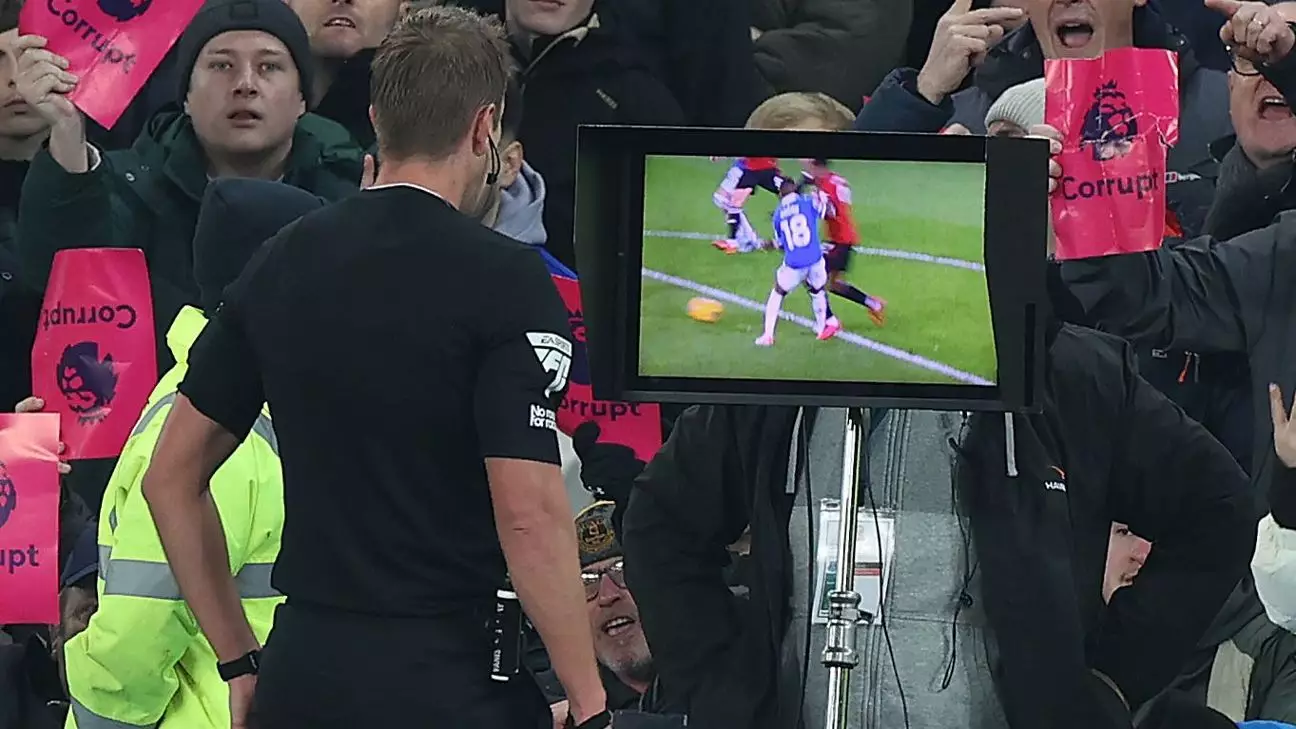Despite Wolverhampton Wanderers’ efforts to scrap VAR in the Premier League, clubs voted 19-1 in favor of keeping the video assistant referee system. The motion presented by Wolves at the end-of-season AGM highlighted concerns about the impact of VAR on the spirit of the game, calling for its removal from the 2024/25 season onwards. However, only a minimal number of clubs backed the motion, resulting in a broader discussion about areas of improvement rather than immediate removal of VAR from English football.
Prior to the AGM, clubs with experience in European competitions featuring VAR were unlikely to support the removal of the technology from the Premier League. While some clubs acknowledged ongoing issues with VAR implementation, many saw it as a necessary safety net against erroneous on-field decisions. The league’s commitment to enhancing VAR processes was highlighted, despite concerns about the number of checks and delays associated with the system. With 38 VAR errors in the 2022/23 season, there has been a 21% drop in mistakes year-on-year, signaling progress in refining the technology.
In a move to address fan frustrations, clubs approved the decision for referees to announce explanations for VAR overturns to the crowd. This measure aims to provide clarity during subjective decision reversals made after referees consult pitchside monitors. However, it does not extend to scenarios where VAR reviews do not prompt referee consultations, leading to continued concerns about transparency and consistency in decision-making.
In addition to VAR discussions, Premier League clubs have opted to implement semiautomated offside technology (SAOT) in the upcoming season. The introduction of SAOT, involving a partnership with Second Spectrum as the offside technology supplier, is anticipated to expedite offside decisions by 31 seconds on average. Unlike the current Hawk-Eye system, SAOT lacks a tolerance level and may lead to increased scrutiny of marginal offside calls. While SAOT aims to reduce the human error in offside decisions, its effectiveness remains to be seen after additional testing.
Second Spectrum, the official tracking provider of the Premier League, plans to incorporate AI-powered skeletal tracking technology into SAOT. This innovative approach aims to enhance the accuracy and efficiency of offside calls by eliminating the need for manual line drawing on player images. However, the absence of a ball chip to detect kick-points, as seen in the FIFA World Cup, poses a potential limitation in offside decision-making during match scenarios involving multiple players in close proximity.
The recent AGM outcome underscores the divergent perspectives within Premier League clubs regarding the retention of VAR and the adoption of SAOT. While some see VAR as a crucial tool for maintaining fair play and officiating standards, others view it as a detriment to the spontaneity and purity of the sport. The upcoming seasons will showcase the implementation and evolution of new technologies like SAOT, indicating a continued commitment to enhancing the accuracy and efficiency of decision-making in professional football.
